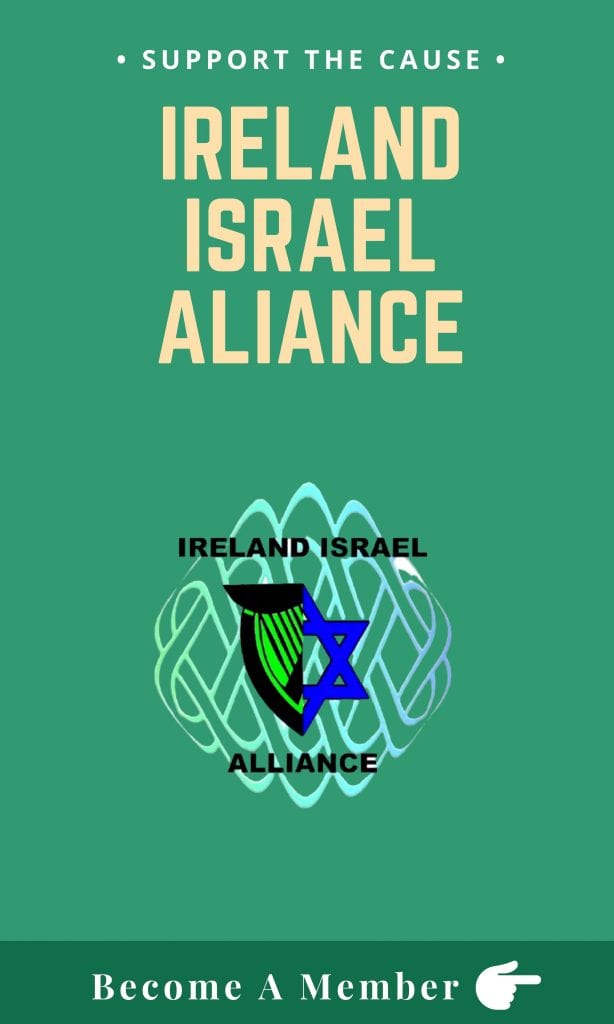Fair-minded observers of the Israel-Palestinian conflict are often left gaping at the tone of the statements emanating from the various forces that oppose Israel. The rhetoric is full of vitriol and hyperbole, couched in near-apocalyptic terms, to a degree rarely found in the discourse on other conflicts around the world. The actions seem totally disproportionate to the issues involved.
Israel-Palestinian conflict: When strolling became storming
Let’s start with a relatively small, local matter: the visits made by Jews to their holiest site, Jerusalem’s Temple Mount, the site of the two ancient Jewish temples and Judaism’s most sacred site, and also the site of the Al-Aqsa mosque at which thousands of Muslims worship weekly. On certain appointed days, the Jewish visitors, forbidden by Israeli law to pray at the site to avoid provocation, are allowed to file quietly in twos and threes up the walkway, staying well clear of the mosque. Police watch them for signs of lips moving.

How do the Palestinian Arab media report these visits? It is routine for them to describe the Jewish visitors as ‘storming the Al-Aqsa mosque’. In 2015, Mahmoud Abbas, chairman of the Palestinian Authority, declared that he would not allow the Jews to ‘defile the Al-Aqsa mosque with their filthy feet’ (1). Last August, the Quds News Network reported: ‘Under the protection of Israeli occupation forces, colonial settlers performed Talmudic rituals near Bab Hutta and Bab Al-Asbat in the occupied Jerusalem this morning’ (2). Why would peaceful visitors to a religious site attract such exaggerated venom?

Why are peace offers futile?
At the wider political level, the processes of give-and-take, of concession and compromise, that often characterise conflict resolution elsewhere, are notable by their absence. In 2000, a left-wing Israeli government backed a plan by then-President Clinton to offer more than 90 per cent of Judea-Samaria (the ‘West Bank’) along with the Gaza Strip and eastern Jerusalem as the basis of a Palestinian state. Rather than engage with the offer, show willingness to negotiate or propose an alternative plan, Palestinian Authority chairman Yasser Arafat simply walked away and started the second Intifada that would kill over 1,000 Israelis.
Five years later, a right-wing government unilaterally decided on disengagement from Gaza, pulling out not only the Israel Defence Force but all 9,000 Jewish settlers at great expense and trauma. This was a move that might reasonably have been received as a peace gesture. What was the Palestinian Arab response? The dominant group in Gaza, Hamas, rather than explore it as a possible stepping stone to full statehood, immediately claimed it as a victory for the policy of violent jihad enshrined in its Charter and an abject defeat for the Zionist enemy, and pledged more.
Weirdness on steroids: the “international community” and Israel
The puzzles multiply when we move to the international scene. Last September, the newly victorious Taliban announced that the new government in Kabul was prepared to establish diplomatic relations with all the world’s nations – except Israel! (3). Why would a government 4,000 km away concern itself with a territorial dispute in a tiny corner of the Middle East, while ignoring a much closer one, the Armenia-Azerbaijan dispute that, a few months previously, had erupted into war? Or the one involving Morocco in the more distant but vastly greater area of Western Sahara?
Then there is the wildly disproportionate attention Israel receives at the United Nations and its agencies. Between 2012 and 2015, 83 of the 97 critical resolutions passed at the General Assembly were against one country, Israel. At the Human Rights Council between 2006 and 2016, 68 of the 135 critical resolutions were against Israel. At UNESCO, only anti-Israel resolutions are passed (4). Only a uniquely evil state could attract such censure, so democratic Israel must be that, no?
So what’s the key?
A hint at the answer to all these head-scratching questions is contained in a recent statement from a senior Iranian ayatollah, Alireza Ebadi, governor of the Khorasan province. In a public address aired on TV, he declared that ‘the Jews are the biggest problem for Islam and humanity… the Jews control the world via cultural, psychological and military warfare, and their main goal is to pillage the world’ (5).
If the Israel-Palestinian conflict were simply about ethnicity, or nationality, or access to natural resources, it would not be waged with this level of intensity. The primary driving force of the conflict is not any of these. It is explained by one factor: religion. Specifically, Islamic religion, or the parts of it that deal with law and territory.
Since the 19th century, the Jewish people found it necessary and possible to revive their ancient nation state in the land from which most of their ancestors were exiled after 132 CE, a small part of a large region now dominated by Islam.
In doing so, they offended against important precepts of the Islamic faith.
- Islamic doctrine does not recognise Jews as a ‘people’, but merely as a ‘religion’. Hence the idea of Jewish nationhood is offensive to it.
- Islamic doctrine claims that it has replaced Judaism and Christianity as God’s final revelation. Neither is supposed to stage a revival. The rebirth of Israel constitutes a revival of Judaism. As such, along with activities like veneration of the Temple Mount, it is a direct challenge to Islamic doctrine.
- For almost 1,400 years Jews throughout the Muslim world were forced to exist under Islamic law as a dhimmi community, one of permanently inferior status. In the words of Hajj Amin Al-Husseini, the Mufti of Jerusalem, in 1920, “Palestine is ours. The Jews are our dogs”. The establishment of a sovereign Jewish state violates this Islamic legal status and is thus another challenge to Islam.
- According to Islamic law, territory once conquered by Islam must stay that way forever, and no Muslim leader is allowed to alienate it. This is confirmed in the Charter of Hamas. Peace with an independent Jewish state violates this precept.
Only in the light of these realities can we understand why Arab leaders who make peace with Israel put their lives on the line, as witnessed by the assassinations of Jordan’s King Abdullah in 1951 and Egypt’s President Anwar Sadat in 1981. Only in this light can we understand why the Palestinian Islamic scholar Sheikh Issam Amira recently called on the victorious Taliban to declare a caliphate and to conquer (“liberate”) Jerusalem (6). Only in this light can we understand the tweet of Palestinian-British journalist Abdel Bari Atwan: ‘Arafat told me in 1995 that I would live to see the Israelis fleeing Palestine like “rats from a sinking ship”. Atwan added his own prediction: ‘What is happening at Kabul Airport will repeat itself at Ben Gurion Airport’ (7).
Does the conflict’s religious core mean there’s no hope of a solution?
Not necessarily. Religious doctrines rely on interpretations of scriptures as well as on tradition, and interpretations can change. The Qur’an contains a much-ignored verse, 5:21: “Oh my people! Enter the Holy Land which God has decreed for you, and turn back on your heels otherwise you will be overturned as losers.” This verse has been highlighted by a British imam, Sheikh Dr. Muhammad Al-Husseini, who claims that commentators since the 8th century have interpreted it to say explicitly that God gave the land of Eretz Israel to the Jewish people in a permanent covenant (8).
The Abraham Accords have seen rapprochement between Israel and a number of Arab states that have accepted that Israel is here to stay and that co-operation is the way forward. Only when a parallel process takes place among Islamic scholars, prepared to follow Sheikh Al-Husseini in giving new weight to verse 5:21 and to de-emphasise those verses of the Qur’an and haditha that dehumanise Jews (such as the verses declaring that God turned them into ‘apes and pigs’) or relegate them to second-class dhimmi status, will we be able to look forward to a dawning of peace in the Israel-Palestinian conflict.
But we shouldn’t hold our breaths.
(1) Times of Israel, 17 Sep. 2015.
(2) Quds News Network, 20 Aug. 2021.
(3) Times of Israel, 8 Sep. 2021.
(4) https://unwatch.org 23 Aug 2016; https://en.m.wikipedia.org List of UN resolutions concerning Israel.
(5) MEMRI TV #9041, 7 May 2021.
(6) MEMRI TV #9045, 21 Aug. 2021.
(7) MEMRI on Twitter @MEMRIReports, 23 Aug. 2021. Arafat in 1995 had just put his signature to the Oslo Accords with Israel. His duplicity is evidently not a problem for Atwan.
(8) Simon Rocker, ‘What the Koran says about the land of Israel’, The Jewish Chronicle, 19 Mar. 2009.
By Dermot Meleady




